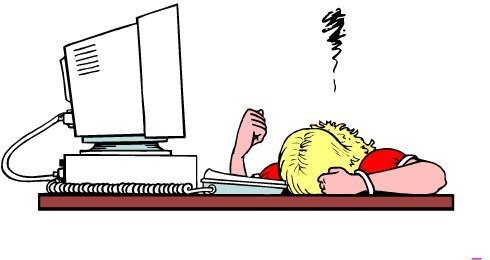How to Recover from a Setback
Have you had any setbacks lately? A project that didn’t go as planned, a cancelled vacation, a job opportunity that didn’t work out, a relationship that didn’t go the way you thought it would?
It’s been one of those years, hasn’t it?
We’re in the middle of a remodeling project here–really a series of projects, but we’ll focus on the current one. We are painting kitchen cabinets. We have two kitchens at our house: a full-size kitchen upstairs, and a mini-kitchen in our basement. Because of prior remodeling, we have two sets of cabinets in two colors and styles upstairs, and a third style downstairs. Oh, the joy of an older home, right?
We had it all planned, and were making progress, until an unexpected family emergency took us out of town for a time. Now we’re back but playing catch-up with work and other responsibilities, and that has put us way behind on our project. It was going to be done the week we went out of town. We still haven’t finished it.
Life is like that sometimes. Despite our best efforts, things happen, and we experience setbacks. But we don’t have to let those setbacks stop us. For many, this year feels like a series of setbacks, and I’ve spent time focusing on how to recover from a setback. We’re only a little more than halfway through this crazy year, so I’m sure there’s more on the way.

How To Recover from a Setback:
Allow yourself to be disappointed.
It’s ok to be upset when things don’t work out. Allow yourself to feel what you feel. Just don’t wallow. Give yourself a time limit and then pick yourself up, dust yourself off, and move forward.
When my recent college grad missed out on a “sure thing” career opportunity, she spent the rest of day mourning in her room, feeling frustrated, angry, disappointed, inadequate, and every other emotion that comes along with those kind of events. The next morning, though, she came out and shared with me a new plan that would still get her where she wanted to be (and later learned that COVID would have derailed the original career opportunity almost immediately after moving cross-country for it).
Consider alternatives.
“Now what?” is a viable question. Can you reschedule? Is there another job? Can you readjust the timetable? Open yourself to other possibilities. You may find an alternative that’s even better than what you didn’t get. My disappointed child had to consider alternatives, and subsequently found an even better path for her career.
Ditch the blame.
Blaming doesn’t help. Acknowledging the cause of your setback, if you know what it is, is ok. But blaming yourself or anyone/anything else won’t help you recover. It won’t even make you feel better for long.

Look for the Lessons.
Use your setback as a learning opportunity. Was there something you could have done differently? Is there something you can change moving forward? Were your expectations in need of adjustment? Was the timing wrong? Learn what you can and leave the rest behind.
Focus on a positive attitude.
Sometimes it’s hard, but a positive attitude does make things just a little easier.
Tend to your health.
Don’t try to catch up or recover by shortchanging yourself on self-care. Your mental and physical health are much more important than whatever your setback is.
Accept help.
Is there someone who can help you? Whether it’s with your specific setback or in another area that might free up time, energy, or resources that you can devote to recovery, set aside your pride, and accept help. It means someone cares about you, and that counts for a lot. It also means you are likely to recover more quickly with support.

Adjust your timetable.
This can be a tough one. It involves letting go of expectations. Maybe that career move is going to take a little longer than you planned. Maybe that dream relationship isn’t going to happen this year. That doesn’t mean those things will never happen. It just means not right now.
Take a break.
Sometimes, stepping back for a bit can help us to regain our perspective, restore our energy, and just feel better. Unless it’s really the optimal solution, just don’t let the break become permanent. So maybe the cabinets won’t be done by the end of the month because the demands of another project mean we have to extend the painting break (and the kitchen will look messy for a couple more weeks). But the cabinets will still get done. And in taking that break, we discovered that there was a quicker way to finish the project than the way we were doing it originally.
Setbacks are frustrating. Sometimes they’re heartbreaking. They’re also part of life. We will all experience setbacks at one time or another. And that’s ok. We just don’t want to allow a temporary stumbling block to become a permanent stopping point. By using these techniques to help you recover from a setback, you can come back stronger and more successful than ever.







